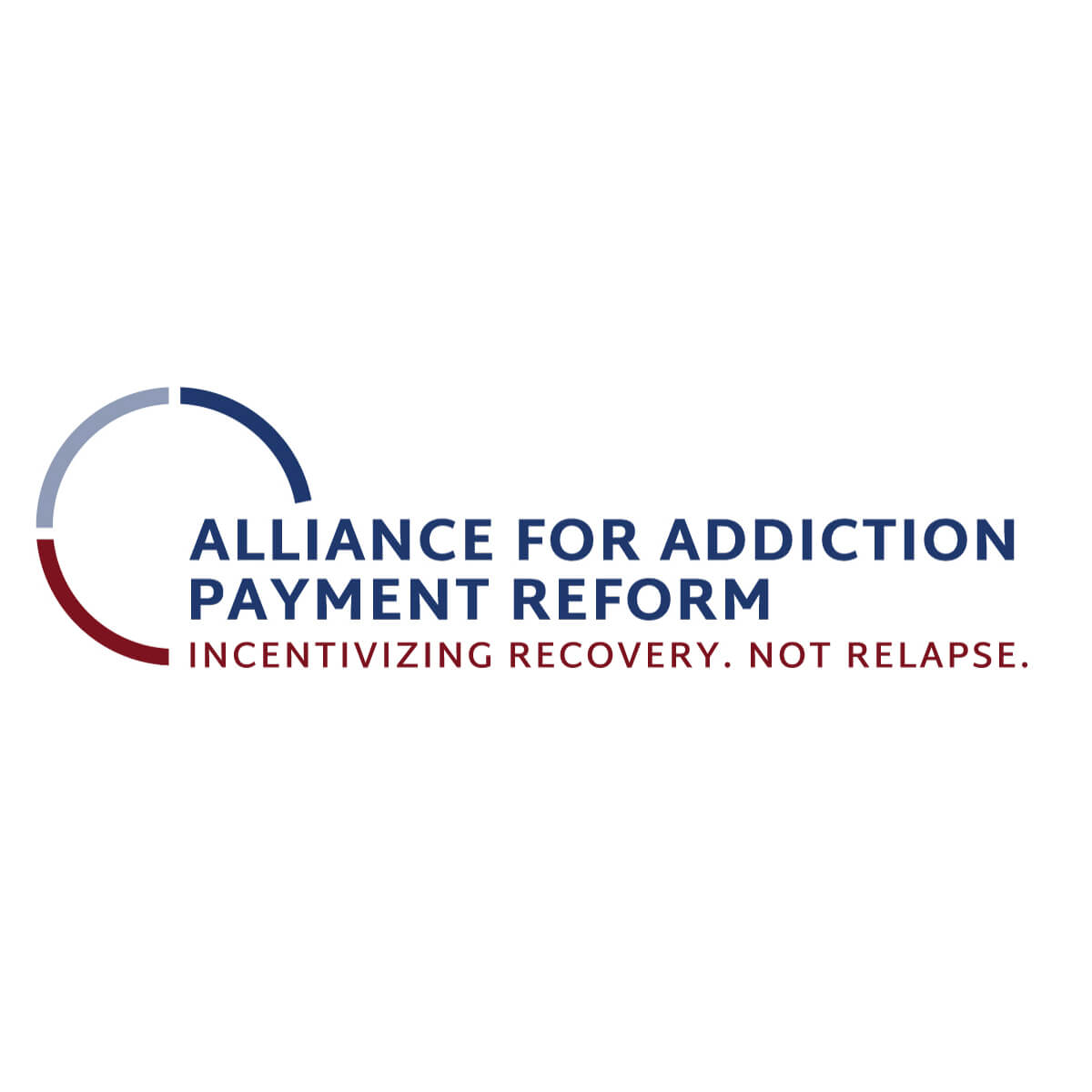September 17, 2019 –Today, in recognition of National Recovery Month, the Alliance for Addiction Payment Reform (Alliance) announced demonstration pilots for the Addiction Recovery Medical Home – Alternative Payment Model (ARMH-APM) and a new consensus episode of care definition aimed to improve long-term outcomes for addiction treatment and recovery. The work represents collaborative efforts between the Alliance and payer and provider partners in Connecticut, Kentucky, North Carolina, Tennessee, Texas, and Washington D.C. to advance value-based payment demonstration efforts that will save lives, focus on improving outcomes, and reduce health costs.
“Transforming the delivery of addiction treatment and recovery services in America is going to take visionary leadership from all sectors of health care,” said Greg Williams, manager of the Alliance for Addiction Payment Reform from Third Horizon Strategies and a person in long-term recovery from addiction. “No longer can we afford to try the same thing over and over and expect different results. Today, this group of health care organizations is taking revolutionary steps forward to solve for the perverse incentives that have led to persistent network adequacy failures and fragmented services for the over 20 million individuals suffering from substance use disorders and their families.”
Addiction treatment has historically largely been delivered only in acute care settings which are inherently more expensive and have minimal ability to achieve quality outcomes when utilized in isolation, as opposed to a chronic care model designed to create long-term sustainable recovery outcomes. The ARMH-APM framework establishes a broad continuum of care ranging from emergent and stabilizing acute-care settings linking with community-based services and recovery supports that are essential to supporting individuals’ needs in a chronic disease management approach.
“Overdoses have risen to become the leading cause of accidental death for those under 50, while alcohol-related deaths still out-pace those from opioids with far less public attention paid to that substance,” said David Smith, a lead architect of the ARMH-APM and founder of Third Horizon Strategies. “The Addiction Recovery Medical Home Alternative Payment Model promotes improved integration of comprehensive substance use treatment and recovery support services with corresponding financial incentives that benefit all stakeholders when the individual is engaged with an integrated care team.”
The Alliance’s current work is built on the foundational effort convened by Leavitt Partners, Facing Addiction with NCADD, and Third Horizon Strategies to develop an APM that could be scaled and advanced through interested parties. In September 2018, the Alliance published the ARMH-APM white paper. Today, the Alliance is releasing an important update to this foundational document that includes a new comprehensive bundle definition prepared in collaboration with Remedy for health care stakeholders who desire to implement the model.
“An episode of care-based model for addiction recovery creates a wholesale, top-to-bottom reordering of the way health care is delivered, measured and paid for,” said François de Brantes, Senior Vice President of commercial business lines for Remedy.
In addition to ARMH-APM specific pilot projects, the Alliance is proud to be collaborating with organizations that have adopted general principles of the ARMH and are operationalizing related value-based payment models for addiction treatment and recovery services.
“We launched Eleanor Health as the first addiction treatment organization developed for value-based care and have been guided by the important work of Alliance for Addiction Payment Reform,” said Corbin Petro CEO and Co-Founder of Eleanor Health. “We are committed to supporting individuals with substance use disorder from a chronic disease management framework and being reimbursed by payer partners accordingly by producing long-term measurable positive health outcomes.”
The Alliance intends to continue supporting the ARMH-APM in additional demonstration markets in 2019 and beyond. A research methodology is being developed to study the effects of value-based models when compared to fee-for-service models of care and to study correlations between specific model tenets and the corresponding outputs.
“As health care increasingly moves towards value-based reimbursement strategies, the Addiction Recovery Medical Home Alternative Payment Model provides a promising learning opportunity for a condition that historically has been left out of most payment innovation efforts,” said Dr. Mark McClellan founding Director of the Duke-Margolis Center for Health Policy at Duke University and Former Administrator of the Centers for Medicare & Medicaid Services. “What we can learn from these important pilots will help to inform the future of care delivery for addiction and co-occurring mental health disorders.”
For more information about this work please visit: https://www.incentivizerecovery.org.
Market-Specific Support for The Addiction Recovery Medical Home:
Eric Bailly, Enterprise Lead for Substance Use Disorder Strategy forAnthem, Inc.
“Key to ensuring quality substance use disorder treatment is earlier diagnosis and assistance – whether it’s clinical or social – to better manage members’ episodic and chronic conditions so they can live better lives,” said Eric Bailly, lead for substance use disorder strategy for Anthem, Inc., one of the largest national health benefits companies. “We’re hopeful that the integrated care pilots in Connecticut and Kentucky demonstrate this payment model works so we can take this concept to other states and reach more members.”
Dr. John Murphy, Chief Executive Officer of Nuvance Health – Connecticut
“Nuvance Health is very excited to partner with national thought leaders to redesign how substance use disorders are treated and reimbursed,” said Dr. John Murphy, CEO of Nuvance Health, a diverse and dynamic health care system serving 1.5 million individuals in Connecticut and New York. “By shifting dollars from the acute care setting to the outpatient setting with linkages into the communities we are able to better serve our population by managing the full continuum of care from prevention to chronic disease management. This approach offers an effective, patient-centered focus for this often-overlooked population.”
Dr. Andrea Gelzer, Senior Vice President of Medical Affairs for AmeriHealth Caritas Family of Companies
“This new model provides innovative solutions for addiction and recovery services that reflects our broad vision of health care – an integrated, whole-person care model which supports our members’ overall well-being,” said Andrea Gelzer, MD, senior vice president of medical affairs for AmeriHealth Caritas. “The Addiction Recovery Medical Home serves as a way of coordinating the various acute, long-term, and hybrid supports needed to foster long-term recovery.”
Dr. David Harmon, Chief Medical Director of Superior HealthPlan – Texas
“Superior HealthPlan is committed to transitioning to long-term value for our Texas Medicaid plan members suffering from Substance Use Disorders,” said Chief Medical Director of Superior HealthPlan. “Texas has a variety of substance problems we are working to address, and the Addiction Recovery Medical Home Alternative Payment Model allows us to creatively partner with our provider networks to begin to invest assertively in long-term outcomes for patients, not just volume.”
Gaye Fortner, CEO of HealthCare 21 Business Coalition – Tennessee
“HealthCare 21 Business Coalition and Memphis Business Group on Health are working together across Tennessee to explore implementation of the Addiction Recovery Medical Home. We are excited to see a solution that supports sustained recovery.” said Gaye Fortner, CEO of HealthCare 21 Business Coalition.
Cristie Upshaw Travis, CEO of the Memphis Business Group on Health – Tennessee
“Tennessee employers are keenly aware of the need for a more effective treatment and payment model that recognizes the long-term needs of those with substance use disorder and aligns financial incentives to support their recovery.” said Cristie Upshaw Travis, CEO of the Memphis Business Group on Health.
About TheAlliance for Addiction Payment Reform
Members of the Alliance include major commercial insurance plans, health care associations, health systems, and stakeholder groups. Since 2017, the Alliance convened clinical, addiction, information technology, primary care, social, regulatory, and policy expertise logging hundreds of hours of work group meetings, ratifying principles and outputs. 2019 Alliance Members include: American Hospital Association, Healthcare Financial Management Association, The Patient-Centered Primary Care Collaborative, The National Council on Behavioral Health, The Duke-Margolis Center for Health Policy, Center on Addiction, The Kennedy Forum, Anthem, AmeriHealth Caritas, CareSource, Superior HealthPlan, FAVOR Greenville, Remedy, Third Horizon Strategies, Nuvance Health, Appalachian Regional Health, Eleanor Health, WEconnect Health Management, Memphis Business Group on Health, HealthCare 21 Business Coalition, Face It Together, Capitol Decisions, and eTransX. For more information about the work of the Alliance please visit: https://www.incentivizerecovery.org.
About Third Horizon Strategies
Third Horizon Strategies focuses on the confluence of key market trends and signals that indicate how the health care ecosystem will operate in the future. This “third horizon” vision is critically important to organizations making serious strategic, investment, and partnership decisions that will fundamentally shift the way key assets are managed and deployed. Third Horizon Strategies provides the strategic planning, intelligence sharing, and collaborative problem-solving necessary to arrive at that future state. For more information please visit: www.thirdhorizonstrategies.com.
# # #

